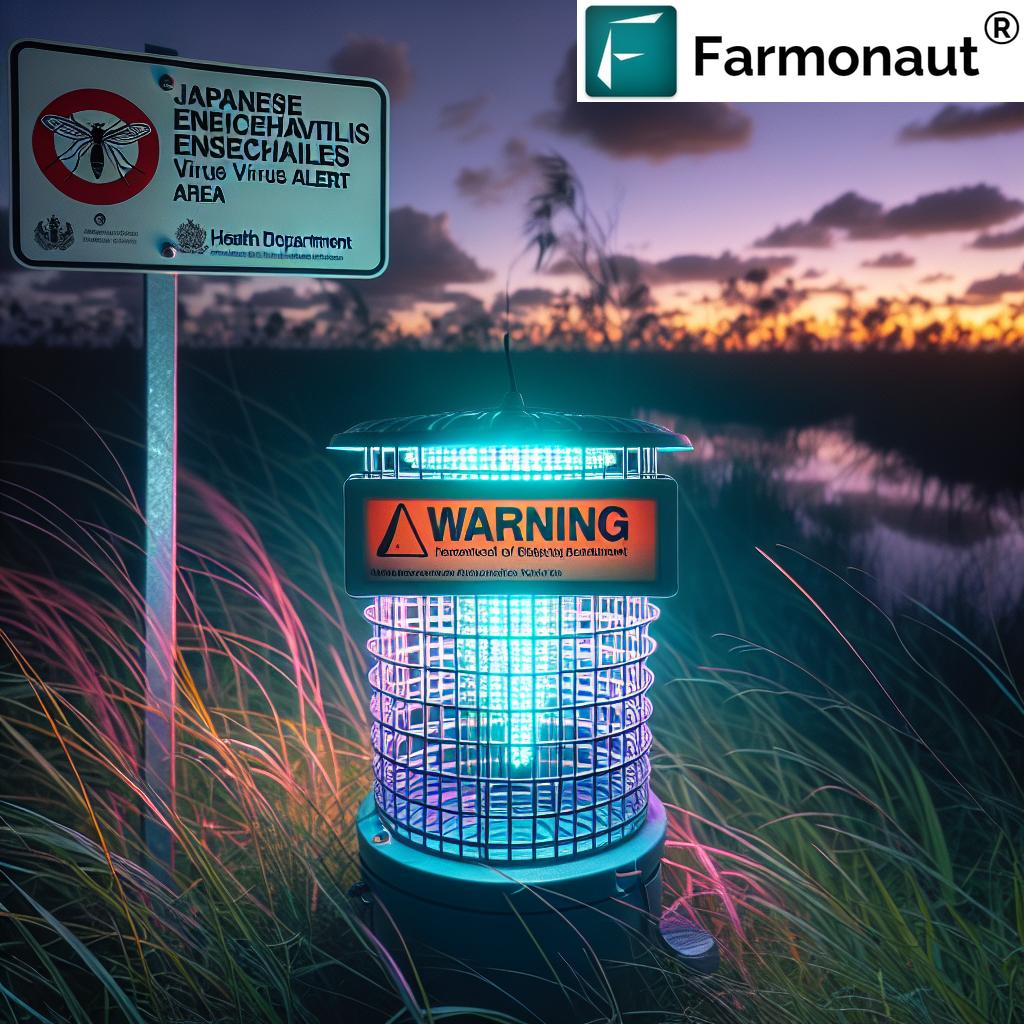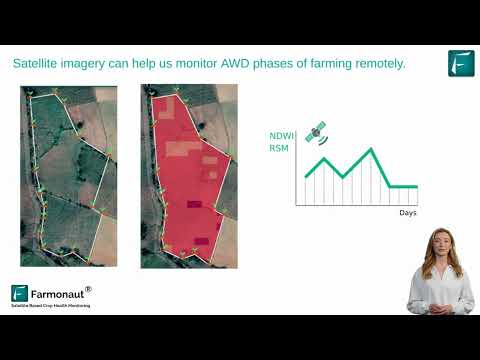Alert: Japanese Encephalitis Virus Detected in Victoria – Essential Prevention Tips for Summer Safety
“Japanese Encephalitis Virus has a fatality rate of up to 30% among symptomatic cases, highlighting its serious public health risk.”
As we navigate through the Australian summer, a concerning health alert has emerged from Victoria. The detection of Japanese Encephalitis Virus (JEV) in northern mosquito traps has prompted health authorities to issue an urgent warning. This development demands our immediate attention and action to ensure the safety of both residents and tourists in the region.
In this comprehensive guide, we’ll explore the recent JEV outbreak in Victoria, understand its implications, and provide essential prevention tips to keep you and your loved ones safe during this heightened risk period. Our focus will be on empowering you with knowledge and practical strategies to protect against JEV and other mosquito-borne diseases, ensuring a safe and enjoyable summer season.
Understanding Japanese Encephalitis Virus (JEV)
Japanese Encephalitis Virus is a flavivirus, closely related to dengue and yellow fever. Transmitted primarily through the bites of infected mosquitoes, JEV poses a significant threat to public health, particularly in regions with favorable conditions for mosquito breeding.
- Transmission: JEV is spread by infected mosquitoes, primarily of the Culex species.
- Risk Areas: Predominantly found in rural and agricultural areas, often near water bodies.
- Severity: While many infections are asymptomatic, severe cases can lead to life-threatening encephalitis.
The World Health Organization (WHO) reports that severe clinical illness occurs in approximately 1 in 250 infections. What’s particularly alarming is the high fatality rate of up to 30% among those who develop symptoms, underscoring the critical nature of prevention and early detection.

The Current Situation in Victoria
On January 15, Victoria’s Department of Health announced a significant development in their early warning program. JEV was identified in two mosquito traps located in northern Victoria, marking the first detection of the virus for this summer season. This discovery has set off alarm bells across the state, prompting immediate action from health authorities.
Dr. Tarun Weeramanthri, the Chief Health Officer of Victoria, has issued guidance for residents and visitors in the northern part of the state. The recommendations focus on two key areas:
- The use of effective insect repellents
- Limiting outdoor activities during peak mosquito hours
These measures are crucial in reducing the risk of JEV transmission and protecting public health.
Current Status: A man from a town 200 kilometers north of Melbourne is currently hospitalized in critical condition due to JEV infection. This case underscores the real and present danger posed by the virus in Victoria.
Prevention Strategies: Your First Line of Defense
In light of the JEV detection, it’s imperative that we adopt comprehensive prevention strategies. Here’s a detailed look at the most effective methods to protect yourself and your community:
| Prevention Method | Effectiveness | Ease of Implementation | Cost |
|---|---|---|---|
| Insect Repellent Use | High | Easy | Low to Medium |
| Limiting Outdoor Activities | Medium | Medium | No Cost |
| Wearing Protective Clothing | High | Easy | Low |
| Eliminating Standing Water | High | Medium | No Cost |
| Vaccination | Very High | Easy (if available) | Free in high-risk areas |
1. Insect Repellent: Your Personal Shield
The use of insect repellent is one of the most effective ways to prevent mosquito bites. Here are some key points to remember:
- Choose repellents containing DEET, picaridin, or oil of lemon eucalyptus.
- Apply to exposed skin and clothing.
- Reapply as directed, especially after swimming or sweating.
For optimal protection, combine repellent use with other preventive measures.
2. Timing Your Outdoor Activities
Mosquitoes that transmit JEV are most active during specific times:
- Dawn and dusk are peak mosquito hours.
- If possible, schedule outdoor activities outside these times.
- When outdoors during high-risk periods, take extra precautions with repellents and protective clothing.
3. Protective Clothing: A Simple Yet Effective Barrier
Your choice of clothing can significantly reduce your risk of mosquito bites:
- Wear long-sleeved shirts and long pants.
- Choose light-colored clothing, as mosquitoes are attracted to dark colors.
- Consider treating clothes with permethrin for added protection.
4. Environmental Control: Eliminating Mosquito Breeding Sites
Reducing mosquito populations around your home is crucial:
- Remove standing water from flowerpots, gutters, and other containers.
- Regularly change water in birdbaths and pet water dishes.
- Keep swimming pools properly treated and circulating.
“Victoria’s health authorities detected Japanese Encephalitis Virus in northern mosquito traps, prompting urgent preventive measures including free vaccination programs.”
5. Vaccination: A Critical Tool in High-Risk Areas
The Victorian government has taken proactive steps by offering free JEV vaccinations in 24 high-risk areas within the northern region. If you’re in or planning to visit these areas:
- Check your eligibility for the free vaccination program.
- Consult with your healthcare provider about the JEV vaccine.
- Remember that vaccination complements other preventive measures and doesn’t replace them.
Recognizing JEV Symptoms: When to Seek Medical Help
While most JEV infections are asymptomatic, it’s crucial to be aware of potential symptoms. Early recognition and treatment can be life-saving. Common symptoms include:
- Sudden onset of high fever
- Severe headache
- Neck stiffness
- Disorientation or confusion
- Seizures
If you or someone you know experiences these symptoms, especially after potential exposure to mosquitoes in high-risk areas, seek medical attention immediately. Early diagnosis and supportive care are critical in managing JEV infections.
The Role of Technology in Disease Prevention
In our fight against mosquito-borne diseases like JEV, innovative technologies play a crucial role. At Farmonaut, we recognize the importance of leveraging advanced tools to combat health threats and improve agricultural practices. While our primary focus is on precision agriculture, the principles of data-driven decision-making and environmental monitoring are equally applicable to public health initiatives.
Our satellite-based monitoring systems, for instance, can provide valuable insights into environmental conditions that may contribute to mosquito breeding. By analyzing factors such as soil moisture levels and vegetation health, we can identify potential hotspots for mosquito activity.
While Farmonaut’s technology is primarily designed for agricultural purposes, the data we gather can be invaluable for health authorities in their efforts to predict and prevent disease outbreaks. By understanding land use patterns and environmental changes, public health officials can better target their mosquito control efforts and vaccination programs.
Community Engagement and Education
Combating JEV and other mosquito-borne diseases requires a collective effort. Here’s how communities can work together:
- Awareness Campaigns: Organize local events to educate residents about JEV prevention.
- Neighborhood Clean-ups: Coordinate community efforts to eliminate mosquito breeding sites.
- Information Sharing: Use social media and local networks to disseminate up-to-date information on JEV risks and prevention.
By fostering a sense of shared responsibility, we can create a more resilient community against health threats like JEV.
The Broader Impact: JEV and Agriculture
The presence of JEV in Victoria not only poses a direct threat to human health but also has significant implications for the agricultural sector. As a flavivirus that can affect both humans and animals, JEV can have devastating consequences for livestock, particularly pigs and horses.
- Livestock Health: JEV can cause reproductive failures in pigs and neurological diseases in horses.
- Economic Impact: Outbreaks can lead to substantial economic losses in the agricultural industry.
- Zoonotic Transmission: The virus can amplify in animal populations, increasing the risk to humans in close proximity to affected farms.
For farmers and agricultural workers in affected areas, taking precautions against mosquito bites is not just a matter of personal health but also crucial for protecting their livelihood and the broader food supply chain.
At Farmonaut, we understand the interconnectedness of agricultural health and public health. Our satellite-based crop monitoring system can assist farmers in identifying areas of waterlogging or excessive moisture, which might serve as potential mosquito breeding grounds. By addressing these issues promptly, farmers can contribute to reducing mosquito populations in rural areas.
Climate Change and JEV: A Growing Concern
The detection of JEV in Victoria raises important questions about the role of climate change in the spread of mosquito-borne diseases. As global temperatures rise and weather patterns shift, we may see changes in the distribution and behavior of disease-carrying mosquitoes.
- Extended Mosquito Seasons: Warmer temperatures can lead to longer active periods for mosquitoes.
- Expanded Habitats: Changing climate conditions may allow mosquitoes to thrive in previously unsuitable areas.
- Altered Virus Transmission: Climate changes can affect the replication and transmission rates of viruses like JEV.
This evolving landscape underscores the need for ongoing research and adaptive public health strategies. It also highlights the importance of sustainable agricultural practices that can help mitigate climate change impacts.
Leveraging Technology for Health and Agriculture
In the face of challenges like JEV, innovative technologies can play a crucial role in both public health and agriculture. Farmonaut’s satellite-based solutions, while primarily focused on crop management, demonstrate the potential for tech-driven approaches in addressing complex environmental and health issues.
- Early Warning Systems: Satellite data can help identify environmental conditions conducive to mosquito breeding.
- Precision Agriculture: Efficient water management in farming can reduce standing water, a key factor in mosquito control.
- Data-Driven Decision Making: Integrating health and agricultural data can lead to more effective disease prevention strategies.
By embracing these technological advancements, we can create more resilient communities and agricultural systems in the face of emerging health threats like JEV.
Preparing for the Future: Long-Term Strategies
While immediate prevention measures are crucial, it’s equally important to consider long-term strategies for managing JEV and similar health threats. Here are some key areas of focus:
- Ongoing Research: Continued study of JEV transmission patterns and vaccine development.
- Sustainable Urban Planning: Designing cities and towns with mosquito control in mind.
- Agricultural Practices: Developing farming methods that minimize mosquito breeding habitats.
- Public Health Infrastructure: Strengthening healthcare systems to respond quickly to outbreaks.
By investing in these areas, we can build a more resilient society capable of addressing future health challenges effectively.
The Role of International Cooperation
JEV is not unique to Australia; it’s a concern across many parts of Asia and the Pacific. International cooperation is crucial in managing this global health issue. Key aspects include:
- Information Sharing: Rapid exchange of data on outbreaks and prevention strategies.
- Collaborative Research: Joint efforts in vaccine development and vector control methods.
- Coordinated Response: Aligning public health measures across borders to prevent spread.
By working together, countries can create a more effective global response to JEV and similar threats.
Conclusion: Staying Vigilant and Informed
The detection of Japanese Encephalitis Virus in Victoria serves as a crucial reminder of the ongoing challenges we face in public health. By staying informed, taking preventive measures, and leveraging innovative technologies, we can significantly reduce the risk of JEV transmission and protect our communities.
Remember, prevention is key. Use insect repellents, wear protective clothing, and be mindful of your surroundings, especially during peak mosquito hours. If you’re in a high-risk area, consider getting vaccinated and stay updated on local health advisories.
As we navigate this health challenge, let’s also reflect on the interconnectedness of human health, animal welfare, and environmental conditions. By adopting a holistic approach to health and agriculture, we can build more resilient communities capable of facing future challenges.
Stay safe, stay informed, and let’s work together to ensure a healthy summer for all Victorians and visitors alike.
FAQ Section
Q1: What is Japanese Encephalitis Virus (JEV)?
A1: JEV is a flavivirus transmitted by mosquitoes, primarily affecting regions in Asia and the Pacific. It can cause severe inflammation of the brain in humans and animals.
Q2: How is JEV transmitted?
A2: JEV is primarily transmitted through the bites of infected mosquitoes, particularly those of the Culex species.
Q3: What are the symptoms of JEV infection?
A3: Symptoms can include high fever, headache, neck stiffness, disorientation, and seizures. However, many infections are asymptomatic.
Q4: How can I protect myself from JEV?
A4: Use insect repellents, wear protective clothing, limit outdoor activities during peak mosquito hours, and consider vaccination if you’re in a high-risk area.
Q5: Is there a vaccine for JEV?
A5: Yes, there are vaccines available for JEV. In Victoria, free vaccinations are being offered in 24 high-risk areas in the northern region.
Q6: What should I do if I suspect I have JEV?
A6: Seek medical attention immediately if you experience symptoms, especially after potential exposure to mosquitoes in high-risk areas.
Q7: How does climate change affect JEV transmission?
A7: Climate change can extend mosquito seasons, expand their habitats, and alter virus transmission patterns, potentially increasing the risk of JEV spread.
Q8: Can JEV affect livestock?
A8: Yes, JEV can cause reproductive failures in pigs and neurological diseases in horses, leading to significant economic impacts in the agricultural sector.
Q9: How can communities help prevent JEV spread?
A9: Communities can organize awareness campaigns, conduct neighborhood clean-ups to eliminate mosquito breeding sites, and share up-to-date information on JEV risks and prevention.
Q10: Are there any long-term strategies for managing JEV?
A10: Long-term strategies include ongoing research, sustainable urban planning, adapting agricultural practices, and strengthening public health infrastructure to better respond to outbreaks.
Earn 20% recurring commission with Farmonaut’s affiliate program by sharing your promo code and helping farmers save 10%. Onboard 10 Elite farmers monthly to earn a minimum of $148,000 annually—start now and grow your income!







